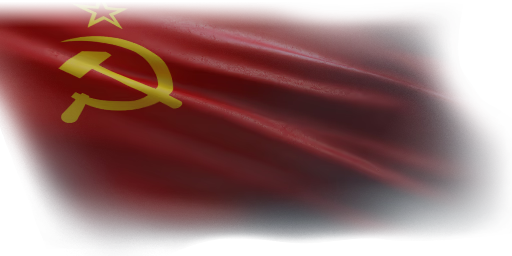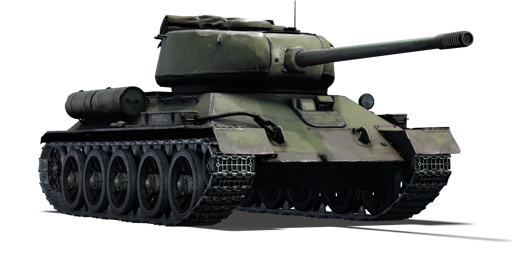



The T-34-100 is an experimental Soviet medium tank and the final modification of the renowned T-34. It differs from previous versions with its new 100mm LB-1 gun, T-44V turret, and revised internal layout. The Soviet Union began developing the T-34-100 because its T-34s could no longer penetrate the latest German tanks. Works on the T-34-100 began in July 1944. By the first half of 1945, the tank was complete. However, it never entered mass production because the more advanced T-44 was already in the final stages of development.
The T-34-100 was introduced in the Update 1.51, "Cold Steel". Due to its weak armor and limited reverse speed, it is not suitable for aggressive gameplay. It performs better as a support vehicle than as a breakthrough tank.
| Ammunition | Type | Armor penetration (mm) at a distance: | |||||
|---|---|---|---|---|---|---|---|
| 10 m | 100 m | 500 m | 1000 m | 1500 m | 2000 m | ||
| APHE | 218 | 212 | 189 | 164 | 142 | 123 | |
| HE | 27 | 27 | 26 | 24 | 23 | 21 | |
| APHEBC | 218 | 215 | 201 | 184 | 169 | 155 | |
| APCBC | 239 | 236 | 220 | 202 | 185 | 170 | |
| Smoke | 5 | 5 | 5 | 5 | 5 | 5 | |
| Belt | Belt filling | Armor penetration (mm) at a distance: | |||||
|---|---|---|---|---|---|---|---|
| 10 m | 100 m | 500 m | 1000 m | 1500 m | 2000 m | ||
| AP-I/API-T | 13 | 12 | 7 | 3 | 2 | 0 | |







 2 x (120 / 185 / 215) %
2 x (120 / 185 / 215) % 
 2 x 178 %
2 x 178 % 

Mobility | |
|---|---|
Protection |
|---|
Firepower | |
|---|---|